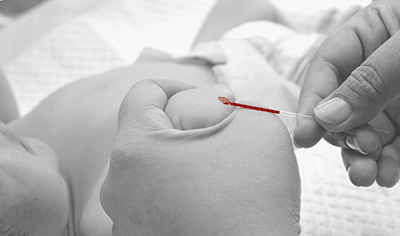A team of researchers from across the globe have discovered a previously unknown genetic immunodeficiency by analyzing five families at Boston Children’s Hospital. The condition is linked to a mutation in the DOCK2 gene, and it primarily affects the child’s immune system, making them vulnerable to many infections that could be potentially fatal. In the study published in the New England Journal of Medicine, it is stated that this immunodeficiency could be detected during newborn screening within the first 24 to 48 hours of life.

Previously, the only way to give a firm diagnosis of many genetic immunodeficiencies, like DOCK2 or CVID, would be after a child was already diagnosed with an infection, making treatment more difficult and the risks much higher.
The study states that the DOCK2 deficiency “had profound effects on multiple aspects of the patients’ immune systems, causing a profound decrease in T-cells and defects in T-, B- and natural killer (NK) cell function.” This study and its supporting data helps the field of pediatrics and immunology in understanding more about genetics and the basics of human immunity, as well as expanding the diagnostic targets for newborn screenings.
Thanks to the published study, the researchers, and the five families that participated in the study, there are many newborns who will be able to receive early treatment for DOCK2 deficiency, helping to prevent them from getting infections, as well as helping in the development of medications and treatments to support this kind of genetic immunodeficiency.
In addition to screening, we also wrote a piece on vaccinations becoming mandatory for other immunodeficiencies like common variable immune deficiency (CVID}.
If you or a loved one has gone through the often times difficult road of diagnosis for an immunodeficiency disorder, share this to raise awareness for early detection.






